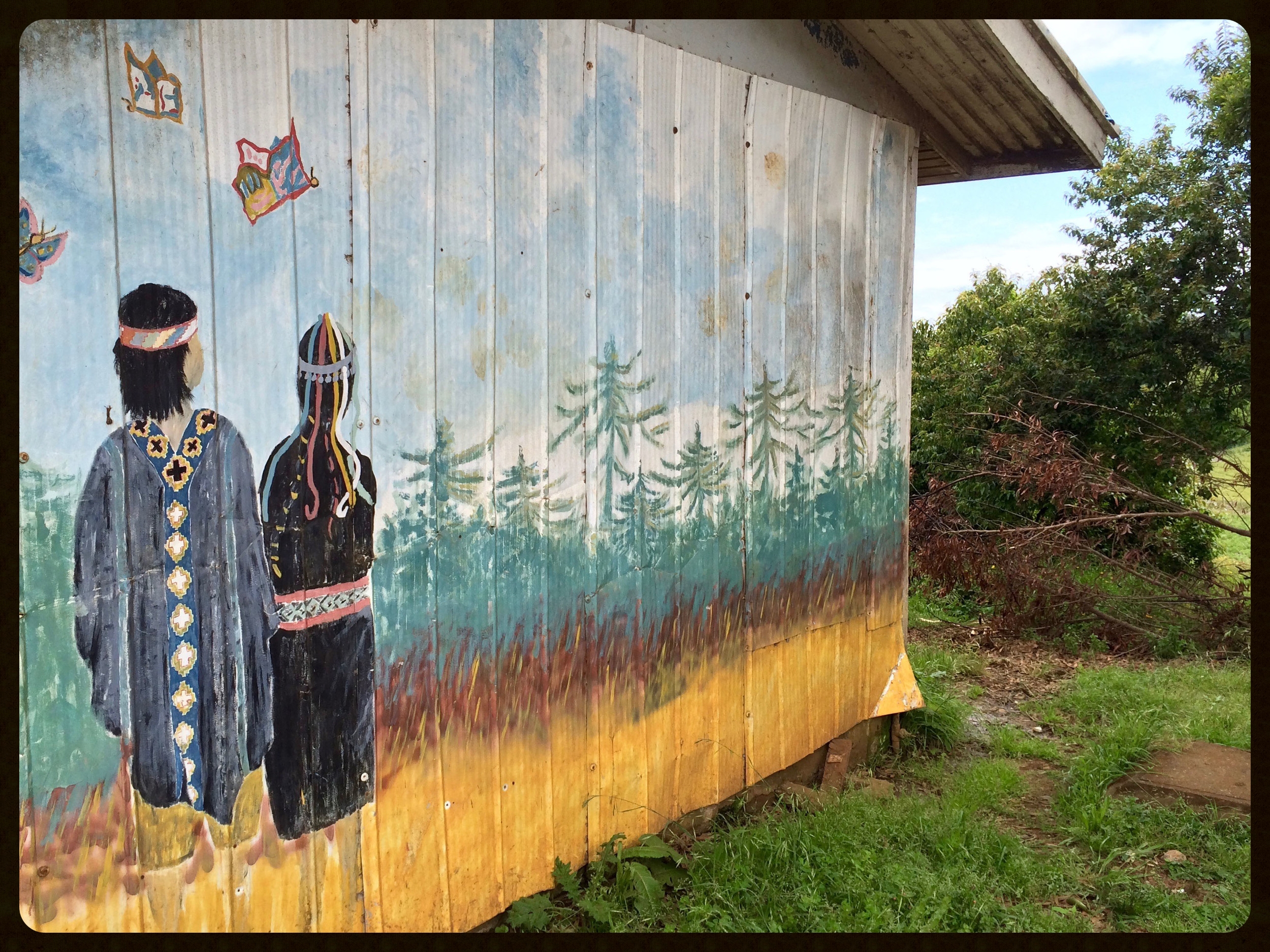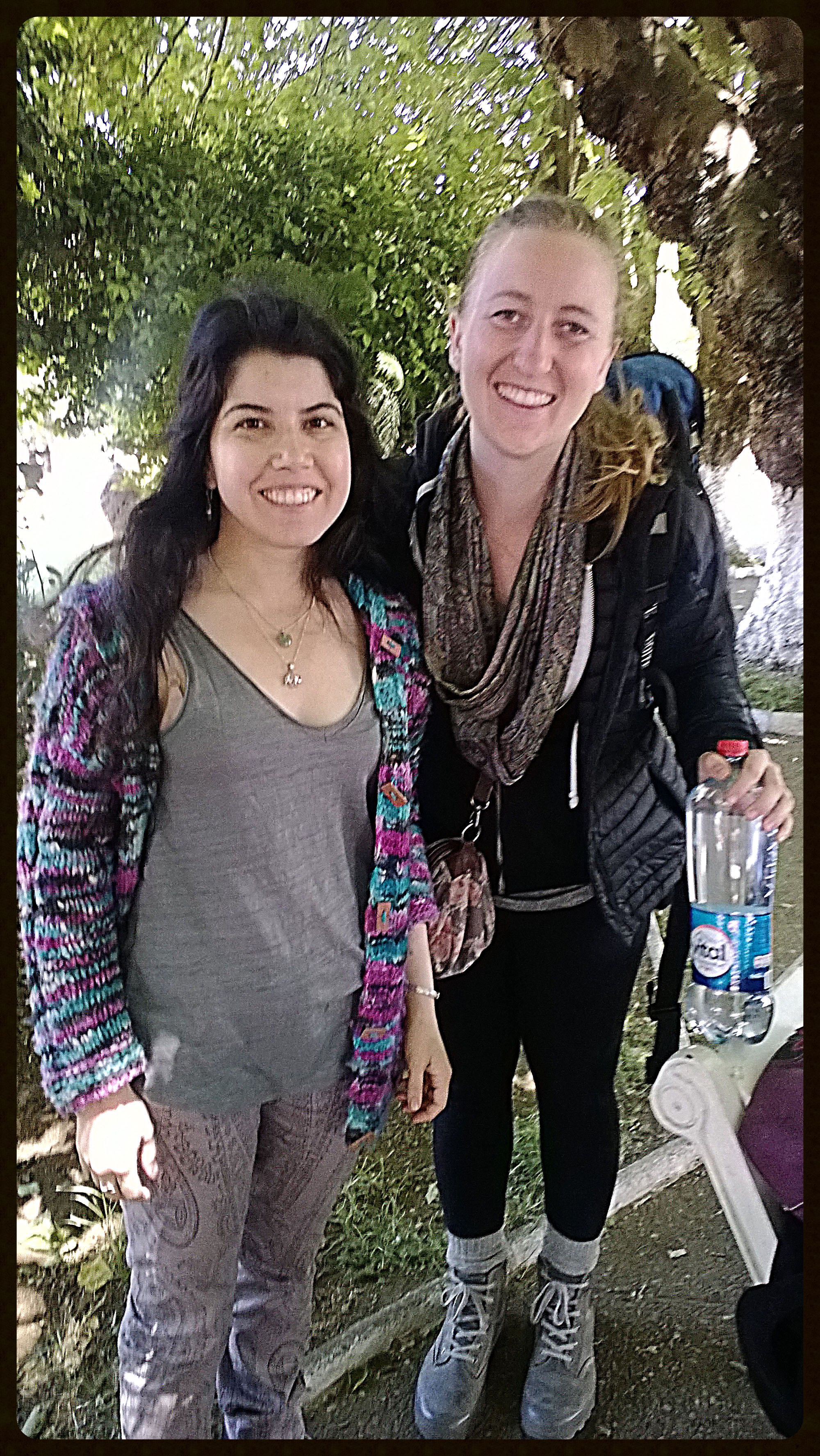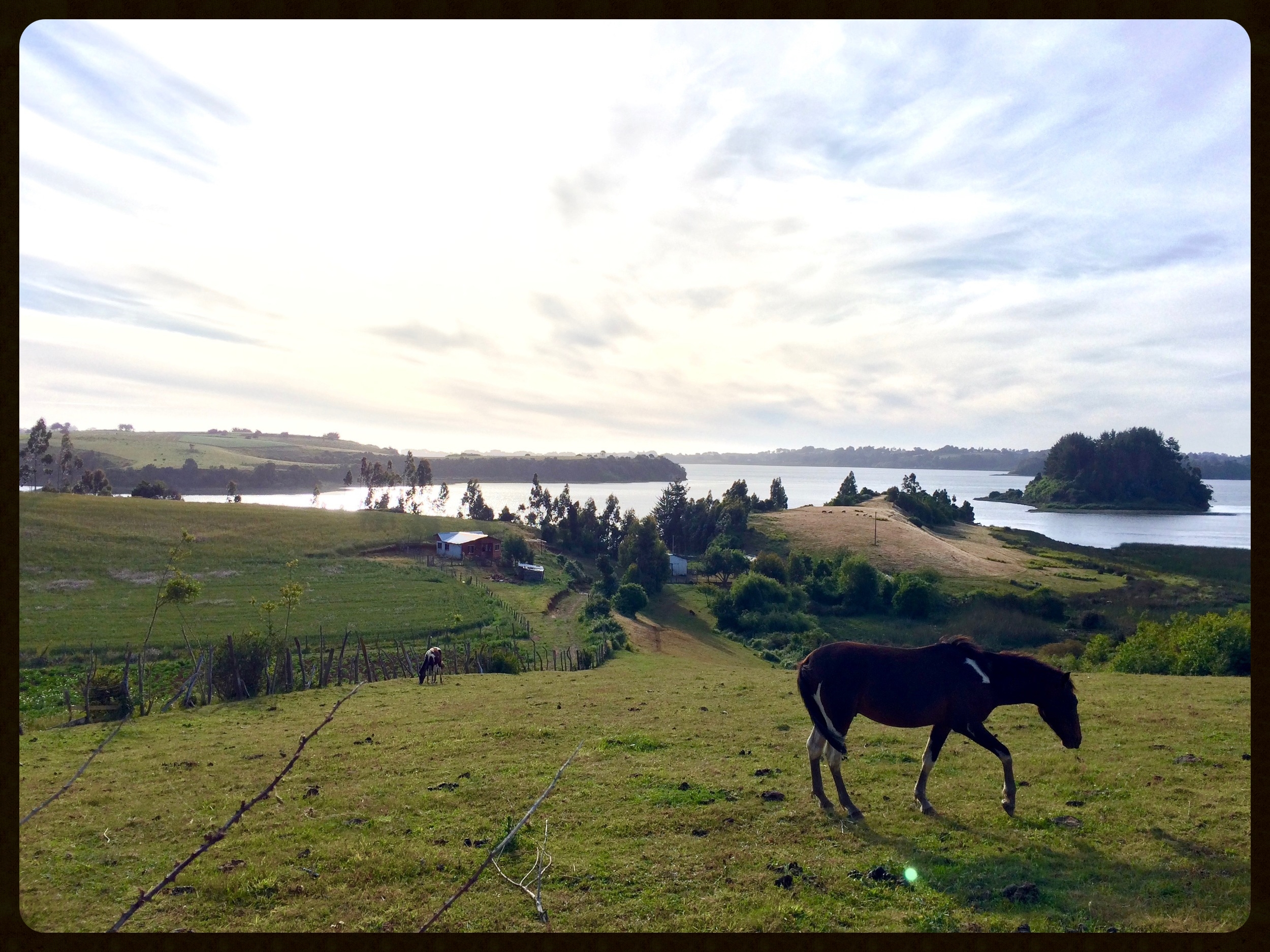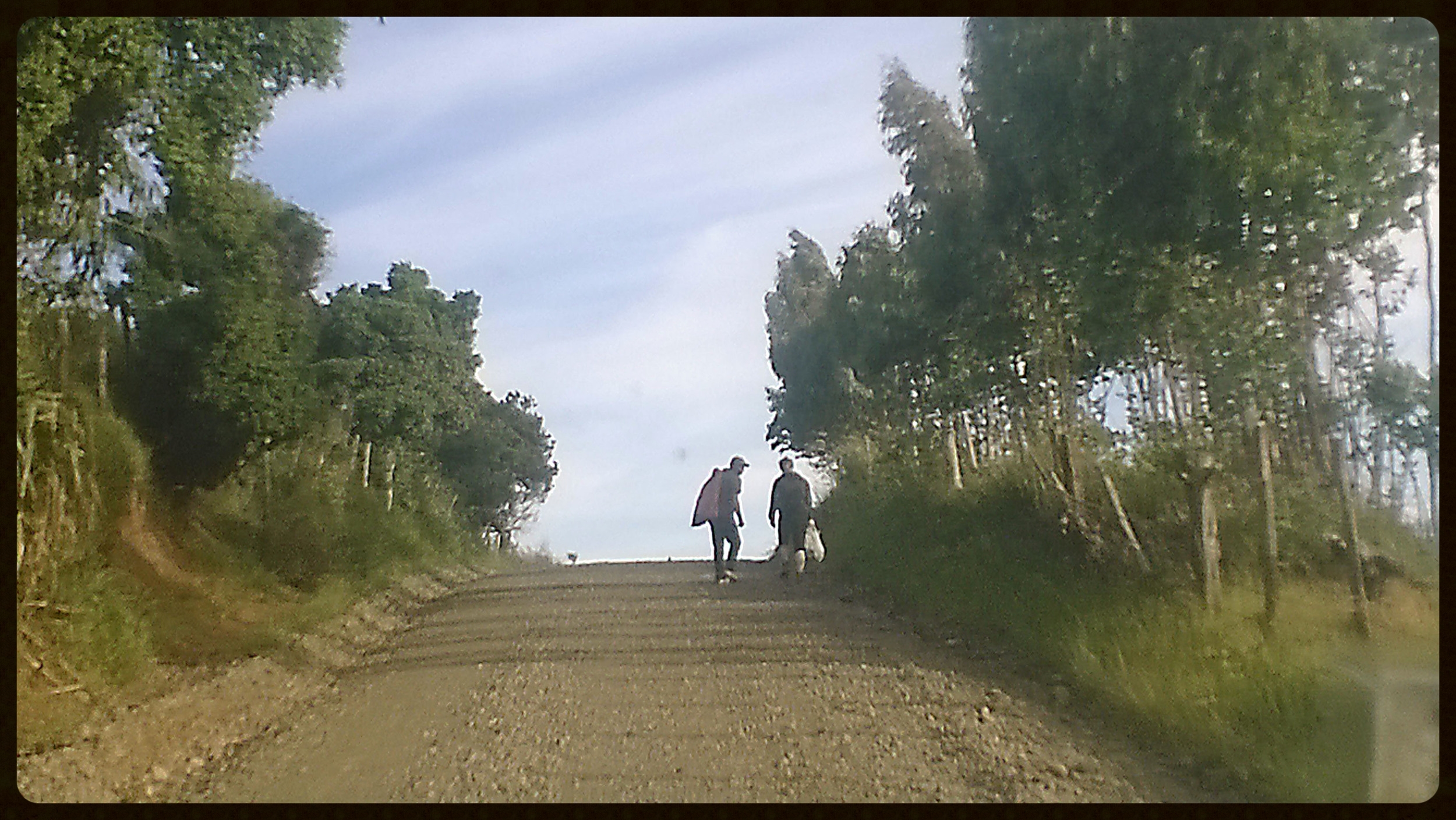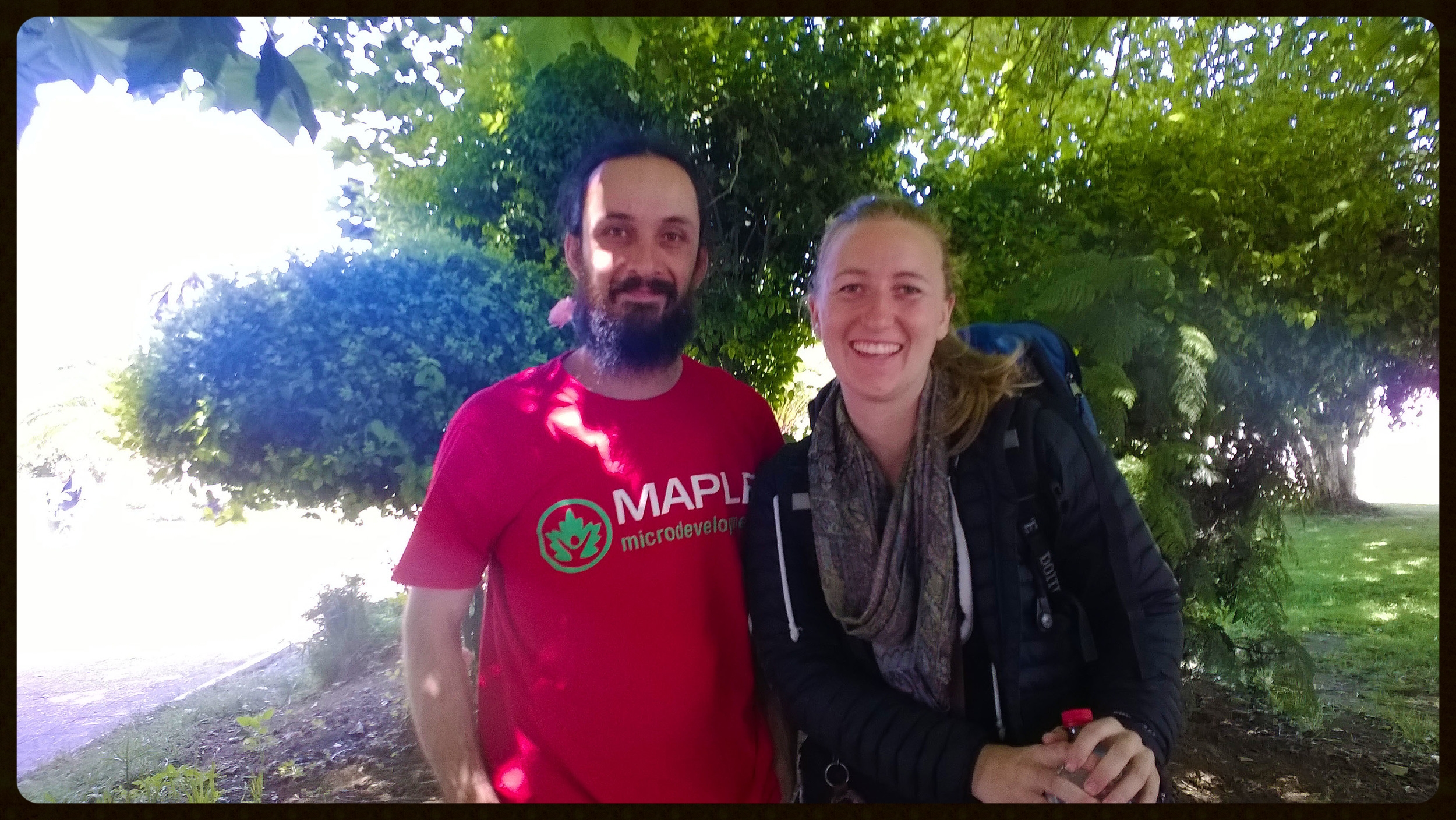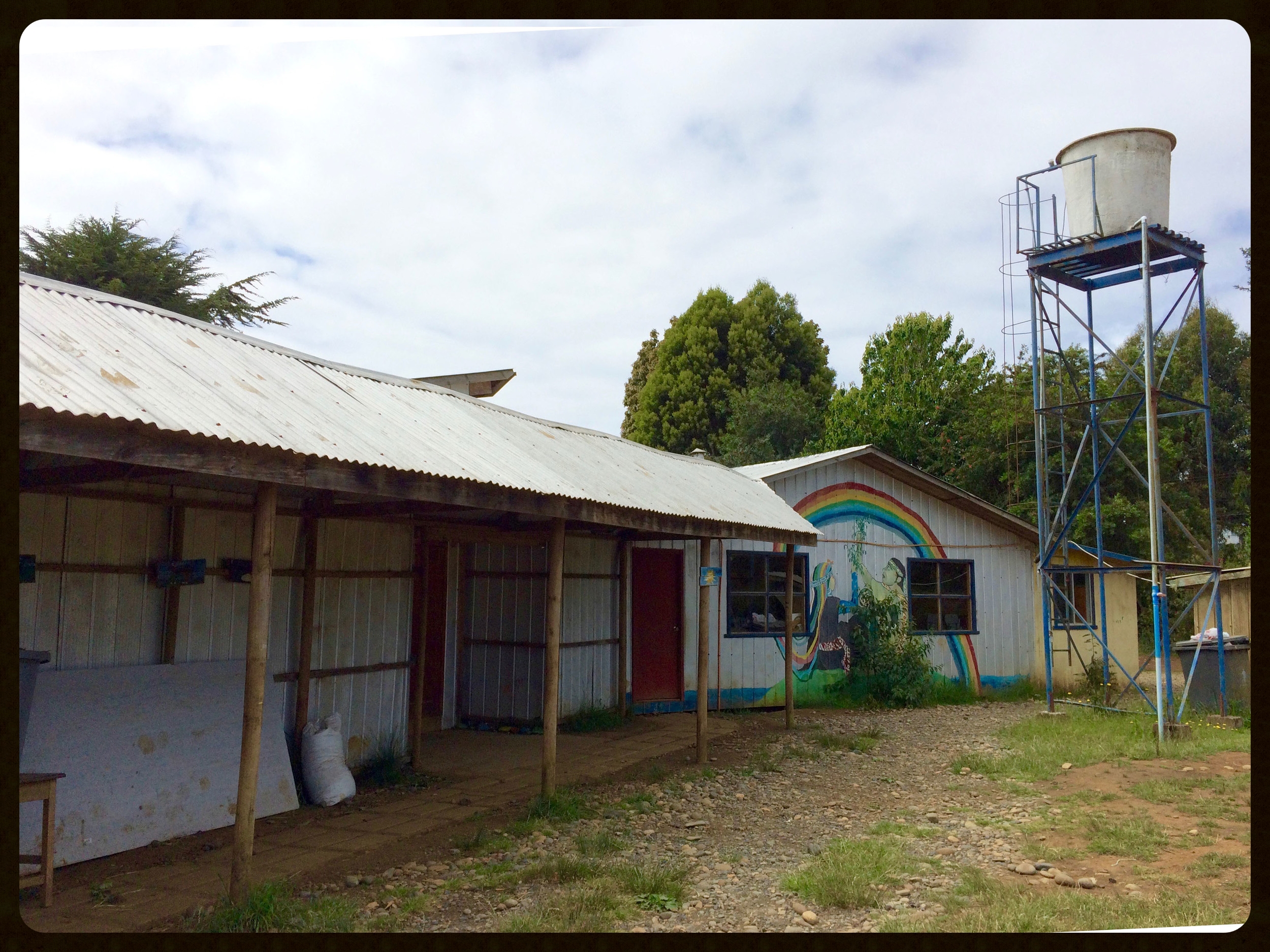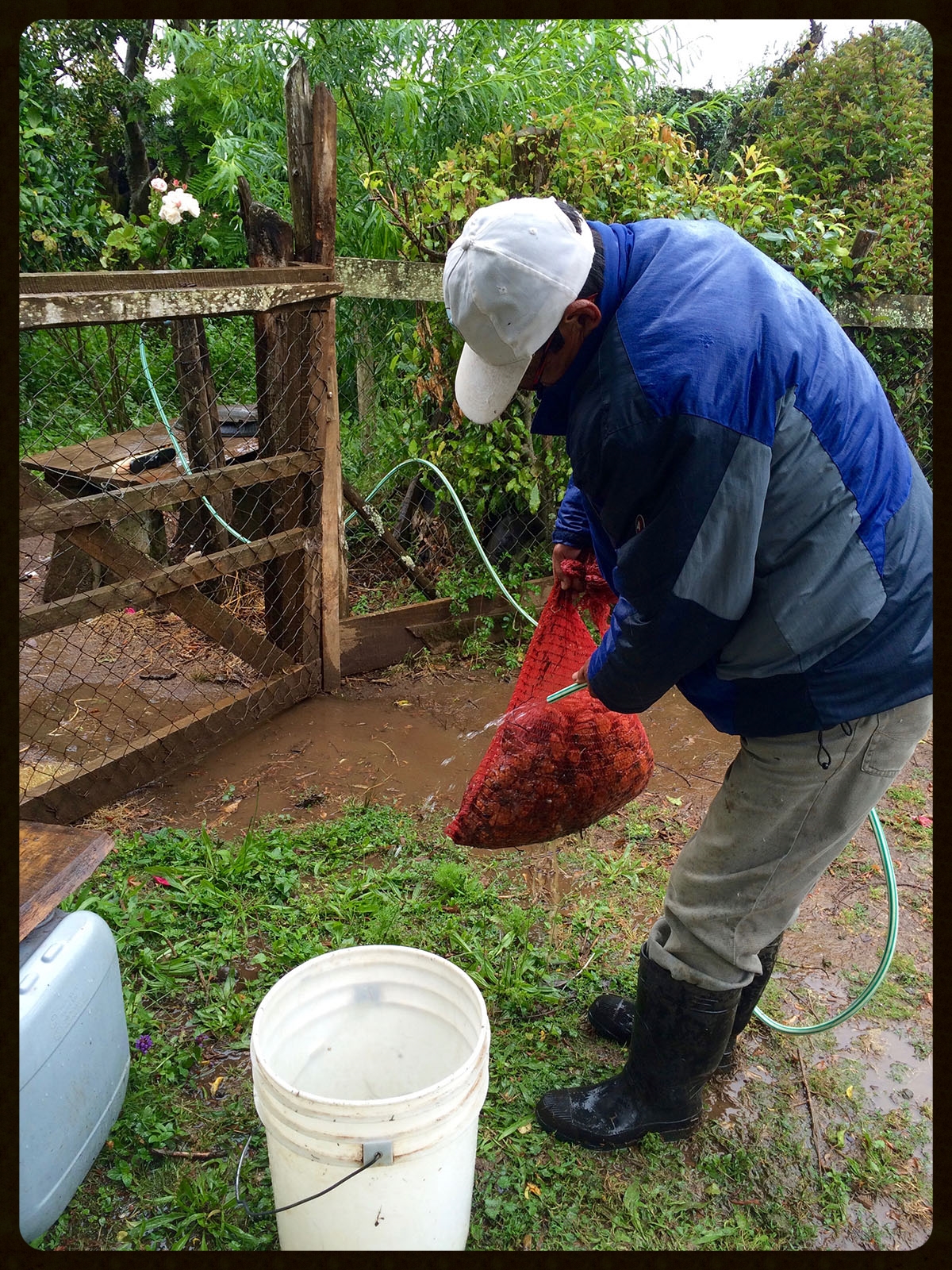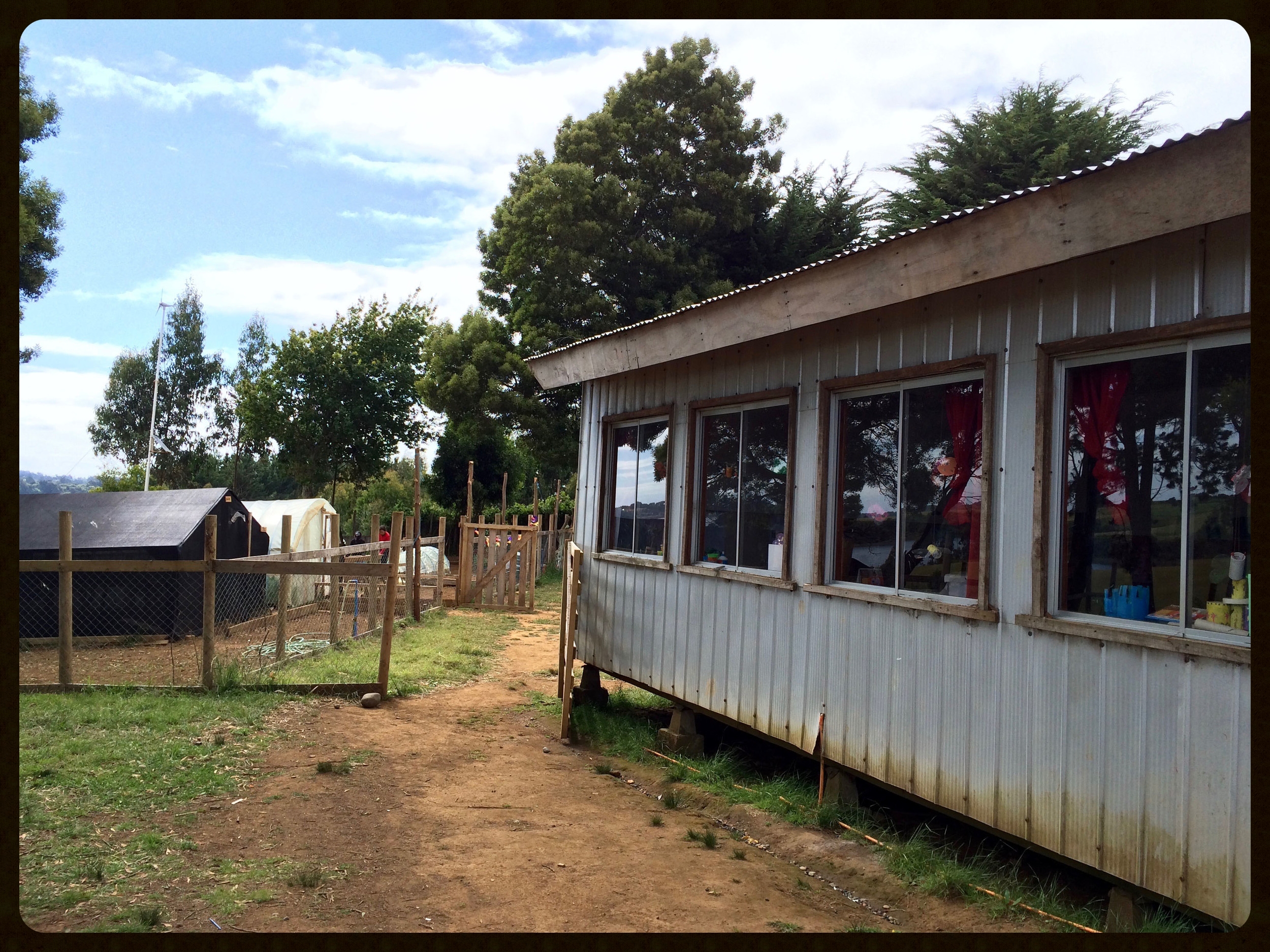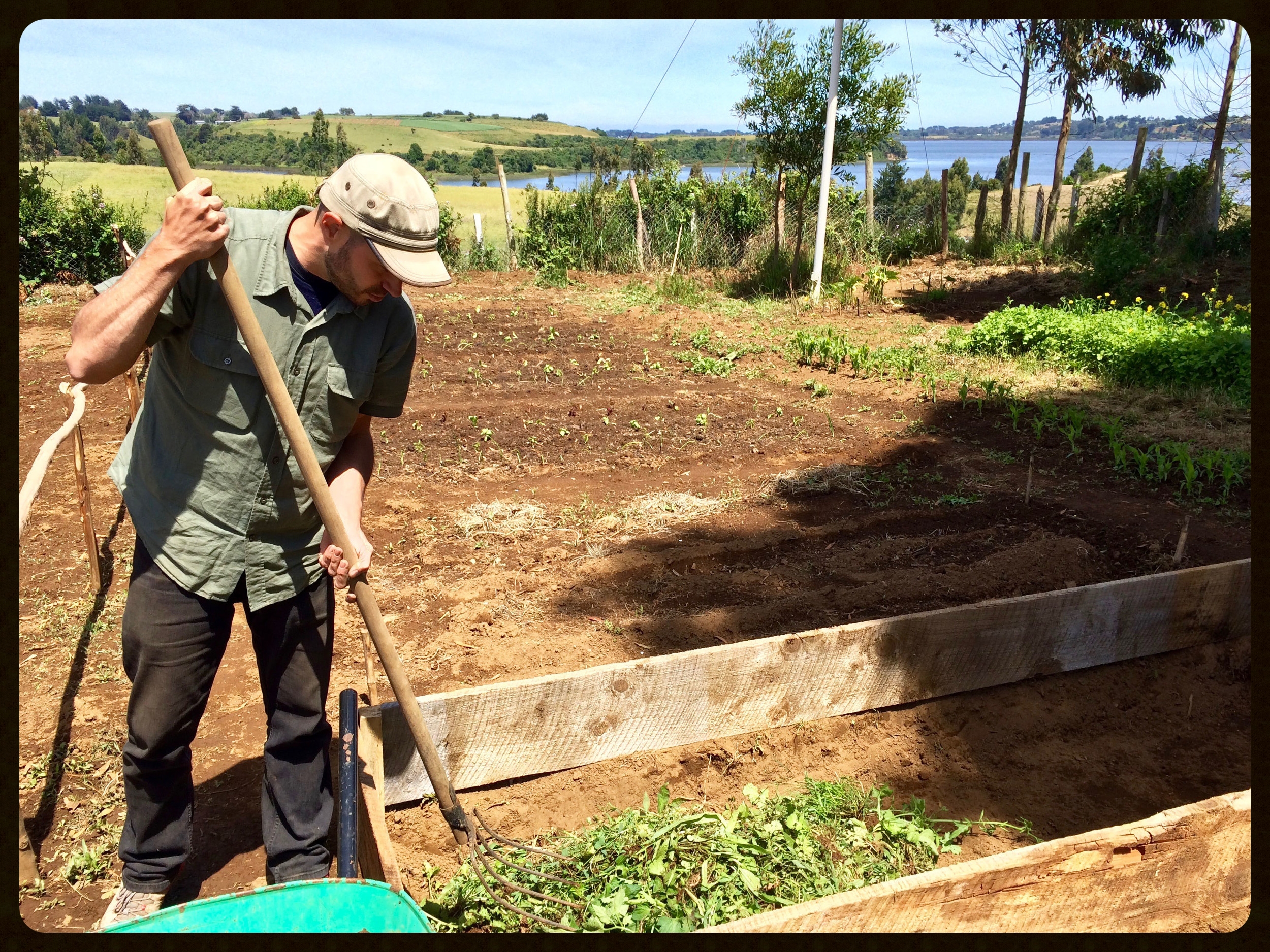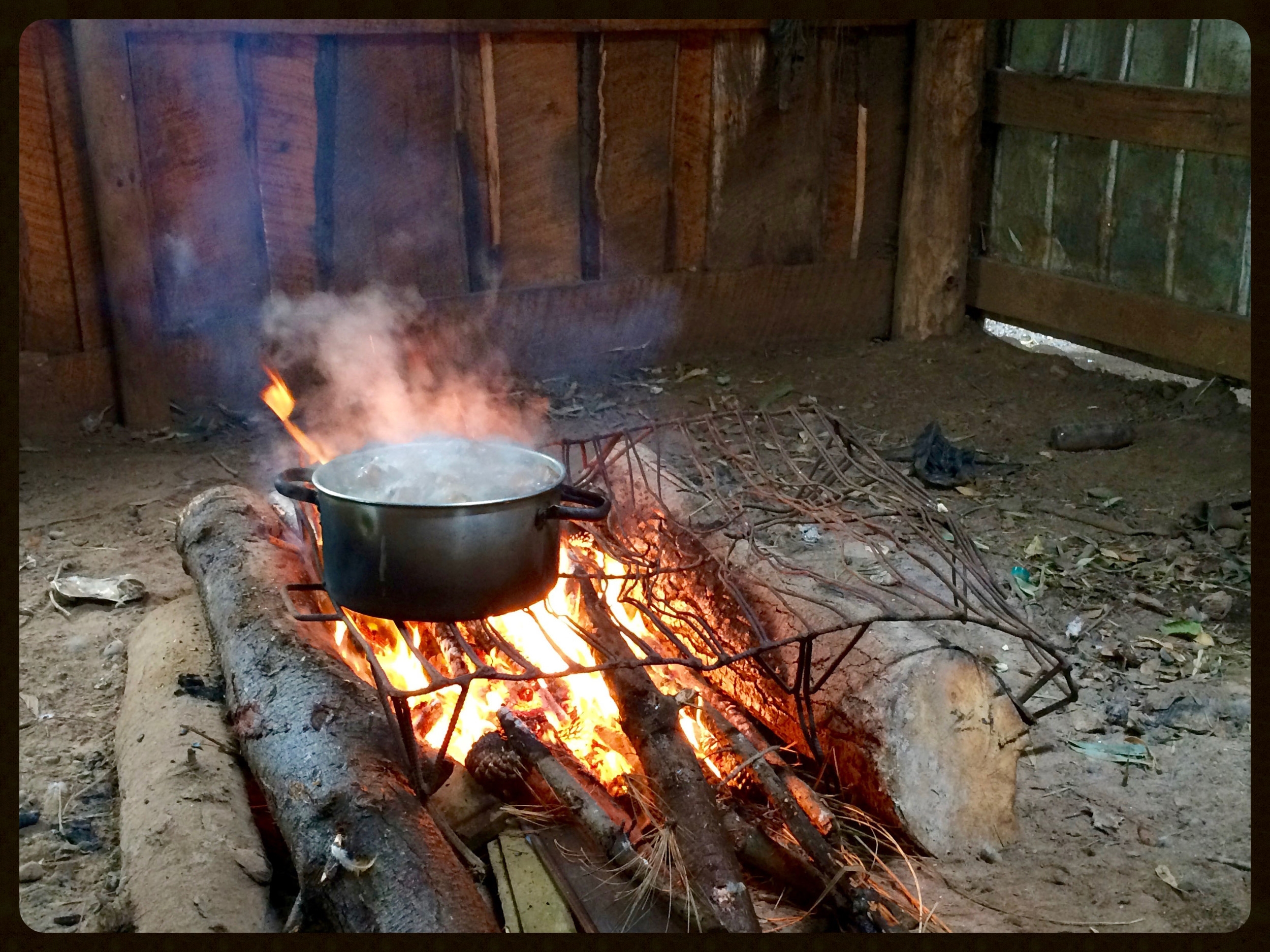By Delaney Swink
I recently spent a week living with three separate Mapuche families, in the Araucanía region of southern Chile. In just one week, I was able to participate in the day-to-day lives of these families, scraping the surface of understanding some of the issues they face, and observing firsthand how MAPLE is becoming an integral factor in helping Mapuche families revive their culture and develop their community in ways that fit their community goals.
(A Mapuche Mural, Alison Guzman and Delaney Swink, Horses Grazing by the Lake)
The discrimination and injustice that the Mapuche people face dates all the way back to the abuse that took place during European colonization of the country, along with the forced evangelization that still exists and caused forfeiture of traditional beliefs and practices. Still more oppression took place under the Pinochet dictatorship – a patent lack of respect for the Mapuche’s right to their own land and territory as Pinochet endeavored to forcibly homogenize the country and cease traditional practices in attempt to modernize and "westernize” Chile. Everything from the seizing of native land, forced evangelization, banishment of the native language of Mapudungun, to current day Chilean textbooks that unjustly portray Mapuche as lazy drunks (and go on to win national awards for their accurate cultural depictions), the discrimination that the Mapuche face is a prevalent part of their history and current daily lives.
Speaking to la Señora Virginia and her husband Geronimo brings light to current day struggles of the Mapuche people in their desire for autonomy amid limitations imposed by the Chilean government. The Mapuche are given minimal assistance from the government - limited social services, poor infrastructure of unpaved roads and faulty pipes that carry a water supply that runs brown in many homes - yet they are forced to pay taxes that don't serve them. They are further forced to answer to Chilean authorities for everything from building code regulations for tourist lodgings to being fined by the Chilean carabineros (police) who pass through the community for the purpose of regulations but seemingly not to actually serve or protect the community.
As I stood in Señora Graciela Chela’s grassy field, watching her recently broken horse feed on the weeds and listening to her speak about when Llaguepulli first got water, she spoke about how all the men would get up early in the morning to walk to the water source to start building the canals and laying the pipes. She laughed remembering that a skeptic neighbor said he would cut off his ear if water actually sprang from the tap once they had finished connecting the pipes. Luckily he still has his ear, Señora Chela chuckled, but not because the venture was unsuccessful. She notes that the water runs brown in many homes, carrying sediment and minerals, but it's better than gathering the children as the sun rose each morning to walk to the water source and collect it in buckets, as Señora Chela did with her ten siblings as a child. Nevertheless, this anecdote illustrates just one example of how the Chilean government has disregarded the Mapuche communities. It was not the resolve of the Chilean government to provide pipelines to their people that allowed water to flow into the homes of Llaguepulli. Instead it was the efforts of Llaguepulli community members rising early every morning to dig the canals and place the pipes that met this basic need – and even then, decades after the rest of Chile enjoyed the luxury of running water.
Soon after running water came the luxury of light - electricity installed in most of the houses. It was a revolutionary change, but not one that electricity companies would overlook as an opportunity to take advantage of the native people. Señora Chela pointed out that, as another form of discrimination, the electricity companies continued to raise prices on the Mapuche people without telling them. Soon community members were crushed by electricity bills without adequate notification that the costs were rising.
Now many Mapuche people are trying to take back what is rightfully theirs. They hope to revive their culture that has been systematically suppressed. The struggle for most is to find a balance between cultural autonomy while still gaining rights due to them as citizens of the state - rights that were revoked throughout history since the start of colonization. The Mapuche people hope to reintroduce the Mapudungun language into schools (since it was banned during the dictatorship), and to continue other cultural and spiritual traditions. To achieve this goal, they must build a financial system that shields them from outside sources or large loans that trap people in the treacherous cycle of debt that many banks do, and the way that many nonprofits end up doing in their attempts to help people fund projects.
As a micro-development NGO that strives to build resources within the already self-sufficient Mapuche community, MAPLE can help the Mapuche reach their self-defined goals. There are many factors that set MAPLE apart and make them successful – one key factor being the community with which they work. Many NGOs focus on the suffering and poor, importing western tactics and ideologies to "fix the problem," often causing more harm than good - often further proliferating the white savior complex. MAPLE, on the other hand, works with the Mapuche community. The Mapuche community actually invited MAPLE to come and assist in creating a self-managed micro financing plan that works with the demands of the community - only after approval of the assembly, led by the president and Lonco of the community (the main leaders of the community).
Sylvia (sister of the Llaguepulli Lonco -elected spiritual leader of the community) is one of four women working on the MAPLE Apoyo Mutuo team, and she made it clear that "MAPLE es nuestra herramienta - no somos una herramienta de MAPLE." (MAPLE is our tool, we are not MAPLE's tool.) This statement is key to the mission of MAPLE. MAPLE follows the needs of the people, working on a case-to-case basis to help set up micro finance programs that help community members lend amongst themselves, or set up a system that will allow them to achieve their goals of community or personal development - everything from helping groups of families split the cost of a pig in order to all benefit from its profits, to providing a monetary loan system for families building cabañas (cabins) to generate revenue from tourists, to improving home gardens from which many families sustain their diets. Sylvia explained to me how society dictates that, in order to be a working professional, one must go to the city and get a job and start a life there. Instead, Sylvia points out, many Mapuche of Llaguepulli have returned or stayed in the community to be professionals in their field in their own community, and to her this is a form of rebellion against the constraints Chilean society puts on the indigenous people. There is an expectation to conform to Chilean life, when in reality many Mapuche people don’t actually identify as Chilean at all – but MAPLE does not require Mapuche people to work within this expectation of conformity.
Sylvia says that active but peaceful activism also exists within the school in Llaguepulli, aptly named Kom Pu Lof Ni Kimeltuwe in the Mapudungun language. This school is the only school in all of Chile that teaches Mapudungun to all students as part of the curriculum. To the community, this curriculum is also a form of peaceful rebellion against the constraints society puts on the Mapuche.
Outside of the cultural sphere of the Mapuche people, the environmental sphere of Mapuche territory has been all but destroyed by logging companies that take their land, and plant eucalyptus and pine that encroach on the Mapuche’s livelihood and destroy the native plants and trees. This is another important fight of the Mapuche people. For this reason, MAPLE (along with some of the Mapuche communities in the area of lake Budi) is making an effort to reforest the areas with plants that belong there - not trees just intended to be felled for the timber industry. I was personally able to get my hands dirty with this newer project, a reforestation plan that focuses on self-sustaining native plants and trees, by helping MAPLE directors Alison and Ignacio manage part of the area that is being replanted. Throughout all of my experiences within the community, it became clear to me that land is something hugely valuable to the Mapuche; not just spiritually, but also practically as a means of survival.
In the few days I spent with Patchi's family, I got to experience the importance of their family "huertas" (gardens) and other crops. Her family has two long greenhouses full of vegetables and herbs, fields of potatoes and quinoa, all that they use to sustain their own diets and feed the tourist groups that visit the eatery her family runs. Most families have gardens and a crop like Pachi’s family has, gardens that they rely on for their own sustenance. For this reason, gardening practices are hugely important. Another one of the projects I had the pleasure of working on during my stay was to help with an experimental garden organized by Matt Mariola, a professor currently on his research sabbatical in Llaguepulli. Mariola has connected with MAPLE to work on solutions for more efficient, organic gardening practices - since almost all families are nearly self-sustaining with their own gardens, these new practices will produce immediate returns.
During my ten days in Llaguepulli I began to understand the importance of indigenous preservation - preservation of cultures that have existed for thousands of years and whose existence has been tested on multiple occasions throughout history. A culture whose kindness, warmness, and openness I experienced firsthand. Their value of family is more than I have ever witnessed - even after living in Valparaiso with a host family for five months. The affection between siblings, the time spent all together, the random visits to the tio's house just to say hi (that result in returning home with a bucket full of "papas buna" - fermented potatoes to be boiled in water with sugar and eaten as a traditional dessert) all have deeper ties than meet the eye. Even going to the field to pick potatoes was a family affair, which with Pachi’s family even included 18-month-old Alonso in his padded onesie.
With the Llaguepulli community, I experienced first-hand how the families truly do live off the land, making very few trips into town for groceries, generally consuming what their crops produce - something I can't help but compare to the completely unsustainable food industry that I buy into back in the US. Señora Chela's husband said he has never even been into Temuco, the nearest big city two hours away, where many people from the community go to visit big name brand stores and buy a lot of their clothes and other goods. Their connection to the earth is apparent – such as rejecting capitalistic celebrations like Christmas and remaining with their traditional ones, such as the Nguillatun celebration that I was able to participate in on my last day with the community, where families came together to honor the earth and make offerings to the land and ocean. These traditions are part of what has shaped Chile, but have been forgotten and erased from the country’s history and current-day awareness. In a similar way, native cultures made the United States what it is today, but have been similarly forgotten; discriminated against, and forced off their land.
For these reasons it remains deeply important to preserve these indigenous cultures, and to my surprise, each of the families that hosted me explained that their hope for change lies in the hands of foreigners. As Mapuche people, they face apathy on the part of most Chileans who only see them as the stereotyped versions of who they really are and fail to take their demands seriously. On the other hand, the international community provides some form of hope for the Mapuche people. With enough support and understanding from the outside, they can start to reach their goals and regain the rights they deserve. As survivors of extreme oppression, it is a fight for them to re-claim what was once theirs, but now is a time of political optimism for the Mapuche and with the help of groups such as MAPLE they hold more hope.
Delaney Swink is a student at the University of Oregon, studying Romance Languages and International Studies. She has served as a Student Ambassador and the Public Relations Director for the International Business and Economics Club at the UO and is currently spending time abroad studying in Chile and Morocco. Delaney was recently awarded the Shephard Family Scholarship for Study Abroad from the Robert D. Clark Honors College at the University of Oregon.


